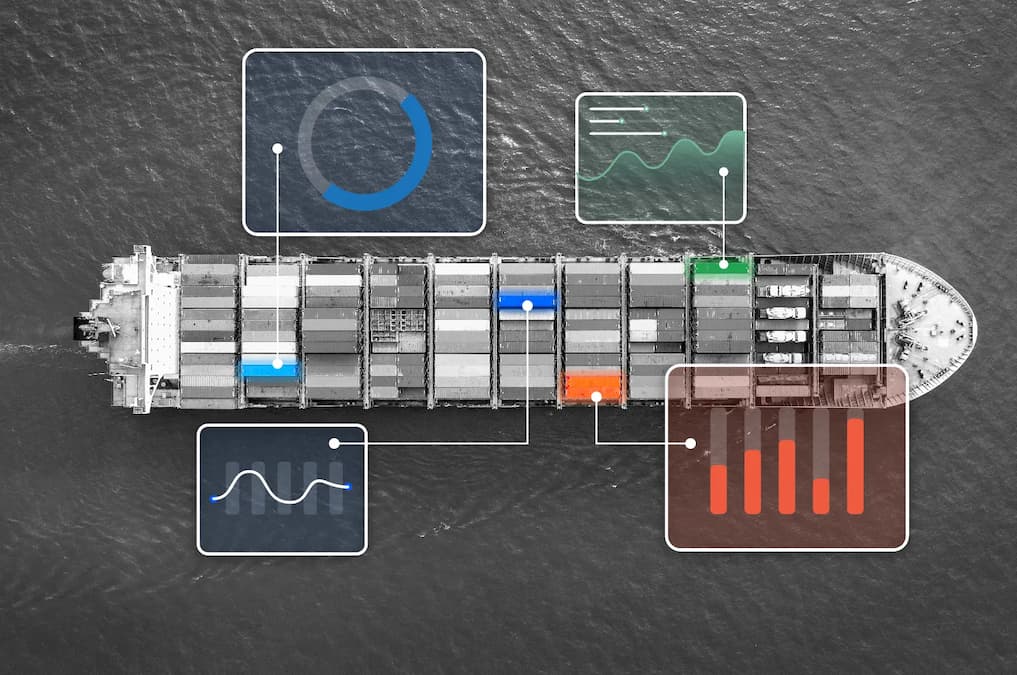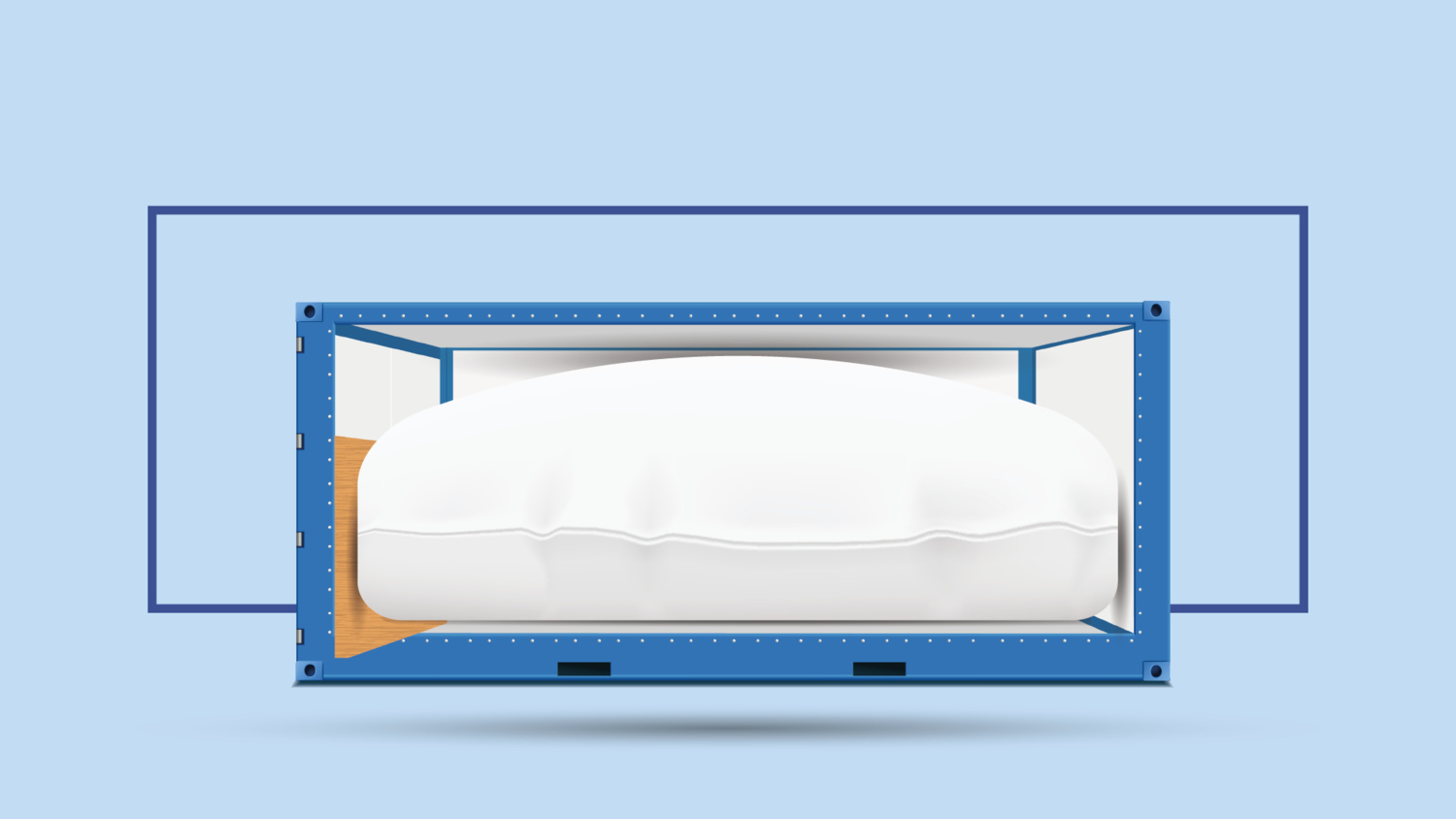The new cool kid on the block: natively insulated shipping containers

What do insulin, coffee, and bananas have in common? Answer: they all depend on insulated shipping containers for global transport.
Insulated shipping containers are - as the name suggests - containers that include insulation to maintain temperature and humidity at a level required to preserve a range of products during transit.
Traditionally, cargo owners have relied on reefers, non-operating reefers (NORs) or extra-fitted containers to transport sensitive goods, such as pharmaceutical goods and perishables. However, a new kid is on the block - natively insulated containers with insulation built into the container when manufactured. This innovation, pioneered by AELER with the Unit One smart container, is a new era in transporting perishable and sensitive goods that don't require refrigerated transportation but still necessitate limited temperature variations.
Shipping sensitive goods: exploring traditional insulated shipping solutions
Let's begin by taking a closer look at the traditional container models that laid the foundation for the industry and unlocked a global market for sensitive goods.
Reefers & non-operating reefers
Refrigerated containers, or reefers, are insulated containers also equipped with refrigeration units that connect to a ship's power supply, enabling them to control temperature, humidity, and atmospheric conditions during transit.
Reefers are designed with ventilation systems to facilitate continuous airflow, crucial for expelling excess heat and gases and especially vital for perishables like fruits and vegetables. They also feature humidity controls to maintain moisture levels between and have drains to remove excess water while blocking external elements.
Operators can also utilise reefers with the refrigeration unit deactivated as non-operating reefers (NORs). Since the motor is not being used, NORs are more cost-effective than fully operational reefers. However, companies typically only lease them if they cannot first lease the container as a reefer.
Extra-fitted containers
Lastly, extra-fitted containers are standard containers with single-use insulation liners added to increase their thermal resistance. These adaptations make standard containers versatile enough to handle sensitive cargo over short durations or less extreme temperature variations.
The next-generation solution: natively insulated shipping containers

While traditional insulated containers have played a crucial role in global logistics, natively insulated shipping containers represent a significant advancement in container technology. In comparison, they offer superior insulation capabilities, cost-effectiveness, and environmental friendliness than making them a compelling choice for cargo owners.
AELER's Unit One containers offer a cost-effective alternative to NORs. They provide similar insulation capabilities without the need for a bulky refrigeration motor, resulting in reduced shipment capacity. By freeing up this space, cargo owners can ship 11% more cargo with the AELER container than an NOR.
Additionally, natively insulated containers help alleviate a shortage of NORs. Companies often lease NORs only when they cannot use them as active reefers, creating a low and unpredictable level of availability. Consequently, natively insulated containers provide a cost-effective and readily available alternative to NORs by removing usage conflicts and competition.
Finally, natively insulated containers offer substantial environmental benefits. Unlike extra-fitted containers, they do not rely on single-use plastic insulation, reducing waste. Moreover, because they operate without refrigeration units, they are more energy-efficient and have a smaller carbon footprint than reefers.
Improving the shipping experience for diverse industries
Industries across the spectrum can leverage the innovative design of natively insulated containers like the AELER Unit One. For instance, the pharmaceutical and medical device sector, which requires stringent temperature and humidity control, can benefit from the AELER container's advanced insulation.
As a case study illustrates, by swapping out traditional refrigerated containers for the AELER model, a global pharmaceutical leader facing the challenge of shipping its products across diverse climates not only ensured that its products stayed within the required temperature range but also reduced CO2 emissions by 18% and cut transportation costs by 21%, demonstrating the container's effectiveness.
Similarly, the food and beverage industry, including perishable products like fruits, vegetables, and dairy, finds immense value in the AELER container. Its ability to maintain consistent temperatures helps preserve the freshness and quality of these products. Speciality segments within this industry, such as wine, chocolate, and coffee, also benefit from maintaining temperatures within a desired range, which is critical for preserving flavour and quality during transit.
A cost effective alternative with sustainable benefits
The introduction of natively insulated shipping containers marks a significant step forward in logistics. These innovative containers cater to the growing need for sustainable and cost-effective transportation solutions, allowing industries with sensitive cargo needs to maintain product integrity while optimising resource usage.
The successful adoption of these containers by sectors requiring temperature regulation showcases their potential to overcome current logistical challenges. Looking ahead, the continued integration of technologies like the AELER container into global logistics is set to redefine our expectations for shipping and supply chain management. By aligning innovation with sustainability, natively insulated containers are paving the way for a logistics landscape that is more efficient and more attuned to the broader challenges facing our planet.
Interested in shipping sensitive cargo more efficiently? Contact us at business@aeler.com
Related resources


Case study: transforming pharmaceutical logistics with smart containers
Case study: transforming pharmaceutical logistics with smart containers


Smart containers: a comprehensive guide to the future of shipping
Smart containers: a comprehensive guide to the future of shipping






